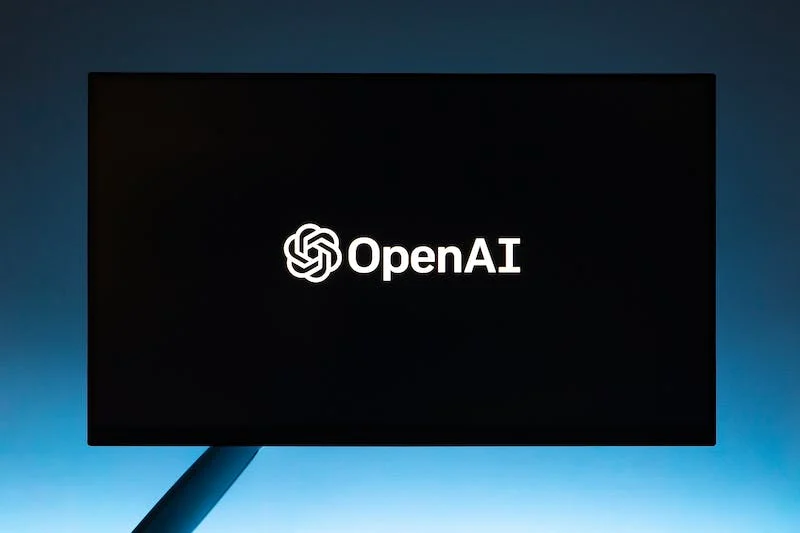Contents
- A New Evolution in AI: From Reactive Tools to Proactive Operators
- Where Agentic AI Is Already Transforming Enterprise Operations
- Why Agentic AI Is Becoming a Strategic Priority for Enterprises
- Key External Sources
- Internal Links
- Challenges and Ethical Considerations Surrounding Agentic AI
- Why Experts Expect Mainstream Adoption by 2028
- Conclusion: Agentic AI Represents a Fundamental Shift in the Future of Work
Agentic AI—systems capable of taking autonomous actions without waiting for direct human prompts—is rapidly becoming one of the most consequential shifts in modern technology. It represents a transformation far beyond conversational AI or predictive algorithms. Instead of merely responding to instructions, agentic AI evaluates objectives, analyses data, makes decisions, and executes workflows independently, often across multiple software platforms at once. As reported by Technology Magazine (https://technologymagazine.com), this emerging model has captured the attention of global enterprises because it promises a new era of operational efficiency and intelligent automation.
What makes this trend so remarkable is the pace at which it is unfolding. Autonomous agents are no longer theoretical or experimental—they have already begun appearing in mainstream business environments. Analysts now predict that by 2028, a substantial portion of everyday organisational decisions will be managed either partially or entirely by AI agents capable of planning and multi-step execution. This projection reflects how quickly the foundation for agentic AI is solidifying across sectors such as logistics, digital commerce, financial operations, and enterprise IT.
A New Evolution in AI: From Reactive Tools to Proactive Operators
To appreciate the significance of agentic AI, it helps to reflect on the evolution of AI technologies over the past decade. The earliest wave of automation involved simple rules-based systems that offered limited assistance and required constant supervision. The next generation—powered by large language models—introduced the ability to generate text, summarise data, answer questions, and collaborate conversationally with humans. However, even these models were ultimately reactive. They could perform a task only after receiving explicit direction.
Agentic AI changes the paradigm. When provided with a goal, these autonomous systems can plan intermediate steps, coordinate actions, retrieve or update data from APIs and enterprise tools, and evaluate their own progress. This means an agent could be assigned a broad directive—such as “prepare a weekly sales report,” “monitor incoming client tickets,” or “optimise inventory orders”—and handle the entire process independently, from data collection to final output.
This shift represents a profound redefinition of what AI can do within the workplace. Rather than being used as a tool by employees, agentic AI can act as a digital workforce layer, one that manages complex operational responsibilities continuously and with high precision.
Where Agentic AI Is Already Transforming Enterprise Operations
Although still emerging, agentic AI has already found powerful use cases that demonstrate its effectiveness. In customer service, autonomous agents are beginning to manage full customer interactions—identifying issues, accessing account histories, delivering tailored solutions, and escalating only when necessary. This reduces wait times dramatically and enables human agents to concentrate on high-impact support.
In logistics and supply chain management, agentic AI plays an increasingly valuable role. Agents can interpret real-time shipping data, detect potential delays, evaluate supplier performance, and reroute shipments automatically when disruptions occur. These capabilities help organisations maintain greater operational resilience, particularly in a global market shaped by unpredictable events.
Internal workflows also benefit. In areas such as onboarding, procurement, IT asset management, compliance reporting, and contract administration, autonomous agents can replace manual, repetitive tasks that previously required coordination between multiple teams. The result is a reduction in administrative burden and an increase in organisational agility.
Moreover, businesses are beginning to explore agentic AI in decision-making contexts. While full autonomy over high-stakes decisions remains a subject of ethical debate, routine or data-driven decisions—pricing updates, scheduling adjustments, risk scoring, and performance assessments—are well-suited for autonomous execution. With the right guardrails, agentic AI can significantly reduce the cognitive load on managers and executives.
Why Agentic AI Is Becoming a Strategic Priority for Enterprises
The rapid adoption of agentic AI is driven by several key forces that align with long-term business goals. First, the pursuit of efficiency is motivating organisations to eliminate bottlenecks and streamline operations. Agentic AI greatly reduces the need for task-level supervision, allowing processes to run faster and with fewer errors.
Second, scalability plays a crucial role. Hiring and training human employees is expensive and time-consuming. By contrast, deploying additional AI agents requires only computational resources. Companies experiencing rapid growth increasingly turn to autonomous agents to handle onboarding surges, seasonal demand, or complex operational loads.
Third, agentic AI offers the advantage of round-the-clock performance. While human teams require breaks, time off, and shifts, autonomous agents operate continuously. For global organisations, this constant availability enables faster response times, improved uptime, and better coordination across different time zones.
These strategic advantages explain why enterprises that adopt agentic AI early tend to gain competitive benefits that accumulate quickly. Organisations that delay adoption may find themselves struggling to match the speed, productivity, and cost efficiency that AI-driven competitors achieve.
Key External Sources
- Technology Magazine – Agentic AI Trends
https://technologymagazine.com - McKinsey – The Future of Enterprise Automation
https://www.mckinsey.com - Gartner – AI Adoption Forecast 2028
https://www.gartner.com
Internal Links
- Explore more insights on Current trends in technology:
The New Research Assistant: How AI Is Transforming Academia and Academic Publishing
Challenges and Ethical Considerations Surrounding Agentic AI
Despite its transformative potential, agentic AI raises several dilemmas that organisations must navigate. The most pressing concern involves decision accuracy and oversight. An autonomous system, if improperly configured or not closely monitored, could make decisions that generate financial losses or harm customers. This makes human-in-the-loop systems essential, particularly in the early stages of adoption.
Security is another major consideration. Because agentic AI interacts with sensitive data and enterprise tools, it becomes a potential entry point for cyberattacks if not protected with advanced security protocols. Continuous monitoring, audit trails, and access controls are vital to ensuring that agents act only within authorised boundaries.
There are also ethical questions regarding fairness and transparency. If an agent uses biased data, it may make biased decisions—raising issues around accountability and compliance. Organisations must commit to responsible AI practices, including bias testing, transparent documentation, and effective risk mitigation.
Finally, the rise of autonomous agents will reshape workplace roles. While agentic AI is unlikely to cause mass job displacement in the short term, it will alter job descriptions. Employees will increasingly focus on overseeing AI systems, validating decisions, and handling complex tasks that require human judgment. This shift underscores the need for reskilling initiatives and digital literacy programs.
Why Experts Expect Mainstream Adoption by 2028
Industry analysts widely agree that agentic AI will become a core component of enterprise technology infrastructure by 2028. This projection is supported by several converging trends. AI models are becoming more capable of reasoning, planning, and adapting. Enterprise cloud ecosystems are integrating native support for autonomous agent frameworks. Businesses face growing pressure to streamline operations and reduce costs. And AI governance standards are becoming clearer, giving organisations the confidence to deploy these systems responsibly.
As these forces align, agentic AI is likely to transition from an innovative trend to a foundational pillar of enterprise operations. Businesses across sectors—from healthcare and finance to manufacturing and retail—will increasingly rely on autonomous agents to manage routine tasks, interpret large datasets, and coordinate workflow execution.
Conclusion: Agentic AI Represents a Fundamental Shift in the Future of Work
Agentic AI marks a new era in artificial intelligence—one where systems act not only as assistants but as active participants in business operations. As enterprises seek greater efficiency, agility, and scalability, autonomous agents offer a compelling solution that dramatically enhances productivity and decision-making.
The organisations that embrace this transformation early will gain a decisive advantage in an increasingly automated and data-driven global market. Over the next decade, agentic AI will likely become as essential to business operations as cloud computing and digital workflows are today. It represents not just a technological innovation, but a fundamental shift in how work is conceptualised, structured, and executed.




